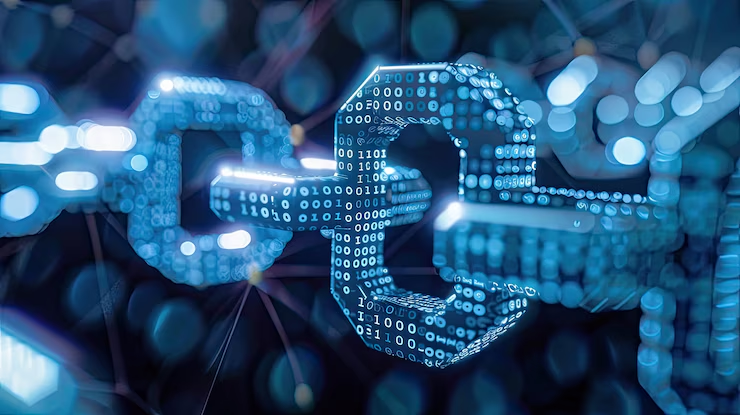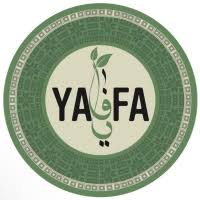
If crypto and blockchain technology is about anything, it is empowering the economically oppressed and marginalized. Satoshi imagined a financial system where influence is not concentrated in the hands of powerful financial institutions and participants don’t need intermediaries to transfer and trade value among themselves.
An Outline of the Palestinian Financial System
Palestinians face economic isolation, financial restrictions, and systemic barriers that limit their ability to trade, invest, and build independent wealth. For one, Palestinian territories do not have a sovereign currency relying instead on multiple foreign currencies, primarily the Israeli new shekel (ILS), along with the Jordanian dinar (JOD) and the U.S. dollar (USD).
This lack of monetary autonomy prevents the Palestinian Monetary Authority (PMA) from implementing independent monetary policies, making it difficult to effectively manage inflation, interest rates, and economic stability.
The use of the shekel, in particular, ties the Palestinian economy closely to Israeli financial regulations and banking oversight. This limits fiscal maneuverability and is weaponized in times of conflict, worsening economic conditions.
Palestinian banks also rely on Israeli institutions for liquidity, foreign currency transfers, and global banking access. All in all, this and the previously mentioned conditions mean ongoing conflict has pushed the Palestinian financial system into disarray.
In late 2024, the expiration of crucial waivers allowing transactions between Palestinian and Israeli banks raised fears of economic isolation.
This followed Israel’s decision to withhold and redirect $544 million in tax revenue, which it collects on behalf of the Palestinian Authority. This jeopardized essential government functions, leading to unpaid salaries for civil servants and deteriorating public services.
At the same time, heightened restrictions on movement in the West Bank have severely hindered economic activities, leading to increased unemployment and poverty while Israeli-imposed barriers to aid deliveries in Gaza have led to soaring food prices.
Overall, the financial system is on the brink of collapse with banking operations at risk, government revenues strangled, and entire industries devastated. Facing an increasingly dire and uncertain future, a new movement is emerging.
This movement harnesses blockchain technology to challenge the restrictions and empower Palestinians worldwide. At the heart of it is $YAFA, the first and only legitimate Palestinian digital asset, designed as both a financial tool and a symbol of resistance.

Liberation Through Blockchain
$YAFA is a project built on the dream of liberating Palestine through a holistic blockchain-powered solution. Faced with political restrictions and conflict-driven instability, the ability to transact freely and build wealth outside of traditional banking structures holds the key to economic liberation for Palestinians.
The $YAFA token is a digital asset designed to foster financial independence for Palestinians. It is built on the Solana blockchain — leveraging its speed and low-cost transactions — to offer a decentralized alternative to an economic system vulnerable to external pressures.
It’s more than a token, however, it’s a statement. Every act of purchasing and holding $YAFA is an act of defiance against financial exclusion.
This is important because traditional banking systems and international sanctions have long been used to limit Palestinian economic mobility. By creating a decentralized, borderless financial network, $YAFA provides a way for Palestinians to build and sustain wealth on their own terms.
Use Cases
The token allows Palestinians to engage in cross-border transactions and store value without reliance on Israeli-controlled banking institutions. It also allows them to participate in the global economy despite the restrictive conditions.
By connecting Palestinians in Gaza, the West Bank, and the diaspora, $YAFA seeks to rebuild a sense of unity and collective strength and foster a decentralized civil society free from external control. But Yafa’s ambitions also extend beyond financial freedom.
The initiative is deeply invested in the preservation of Palestinian history, art, and heritage, which are under constant threat of destruction, erasure, and appropriation. Thus, Yafa is collaborating with Digital Palestine to tokenize cultural artifacts and ensure that Palestinian history is not erased amid political turmoil.
Humanitarian efforts are another pillar of Project Yafa’s mission. The initiative has already provided water access points and distributed food to Palestinian families in need as part of its commitment to both immediate relief and long-term sustainability.
Blockchain technology opens a new avenue for aid that the project is harnessing. Unlike traditional aid, which is often funneled through intermediaries with their own political agendas, its decentralized nature ensures that support reaches communities directly.
A New Era of Financial Liberation
Blockchain has the power to reshape the Palestinian economy, offering financial autonomy in a system designed to exclude. $YAFA is at the forefront of this revolution, empowering Palestinians to build their own future. For those who believe in financial self-determination and digital resistance, $YAFA offers a way to contribute to the cause, not just in words, but in action.

Anamta Shehzadi is a tech enthusiast and visionary thinker, passionate about exploring the ever-evolving landscape of innovation. With a talent for simplifying complex concepts, her insightful commentary guides readers through the dynamic world of technology, sparking curiosity and inspiring forward-thinking perspectives
Related Items:Digital Resistance, Project Yafa
